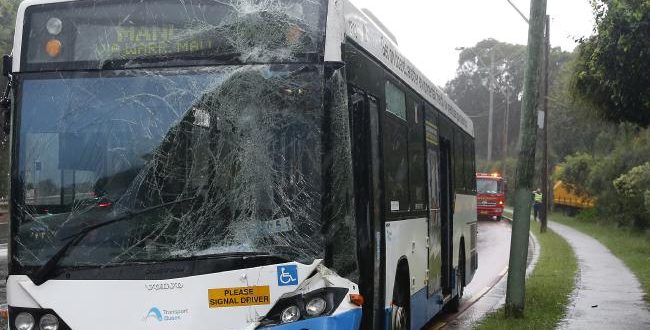Artificial intelligence is predicting whether public bus drivers are likely to have a crash within three months. If the prediction is ‘yes’, they are sent for training, says NEC.
Speaking at the Technology Leaders forum in the Blue Mountains, near Sydney, NEC Asia Pacific vice president Mervyn Cheah said the Japanese IT services corporation had been working on several projects involving artificial intelligence and one involved the habits of bus drivers. Mr Cheah heads NEC’s lab in Singapore.
“You can have AI, and predict If a bus driver will cause an accident in the next three months or so,” he told the conference. “It (AI) could pre-empt that, and send them for training before they could even create an accident.
“We have done a successful trial with SMRT,” he said. SMRT Corporation Is a public transport operator in Singapore.
He said buses could be fitted with cameras capable of biometric analysis that observe the facial expressions of bus drivers. You’d also use telematics (road performance) data created for every bus. In NEC’s experiments, the bus company wouldn’t allow cameras, so NEC engaged two data scientists to observe a bus driver’s behaviour.
Researchers had access to bus driver training records as well.
“Eyes are very important for us, to see what they (bus drivers) are observing.” He said researchers also assessed concentration levels, and which lane a bus driver would take: a safe driving lane or an express lane.
When asked about the ethical implications of closely observing employees, Mr Cheah said the program was working to help drivers avoid accidents. He said in Singapore, drivers were paid an extra $S1000 a month if they were accident free.
Mr Cheah said NEC was looking at adapting artificial intelligence also to the operation of airports, and counter-terrorism. It would also trial the use of AI for traffic management.
“Singapore is growing to be 5.7 million now, It’s going to be 7 million in the next decade, so we believe that traffic management will be a big thing. It might be the same in Sydney as well.”
AI could look at the traffic impact caused by an accident, and based on previous traffic flows, model the impact of the accident over a broader area, and warn drivers. It’s an approach available to some extent on more recent car GPS systems, but in Singapore’s case, the modelling would be more sophisticated.
AI would also be adapted to trying to get people on buses and trains on time, without delay. NEC also wanted to use AI to predict when an elderly patient may have a recurrence of a stroke, after an initial one.
“NEC wants to work very closely with partners, government, as well as customers, enterprise people, where we can co-create solutions together,” he told the conference.
Reader comments on this site are moderated before publication to promote lively and civil debate. We encourage your comments but submitting one does not guarantee publication. We publish hundreds of comments daily, and if a comment is rejected it is likely because it does not meet with our comment guidelines, which you can read here. No correspondence will be entered into if a comment is declined.





